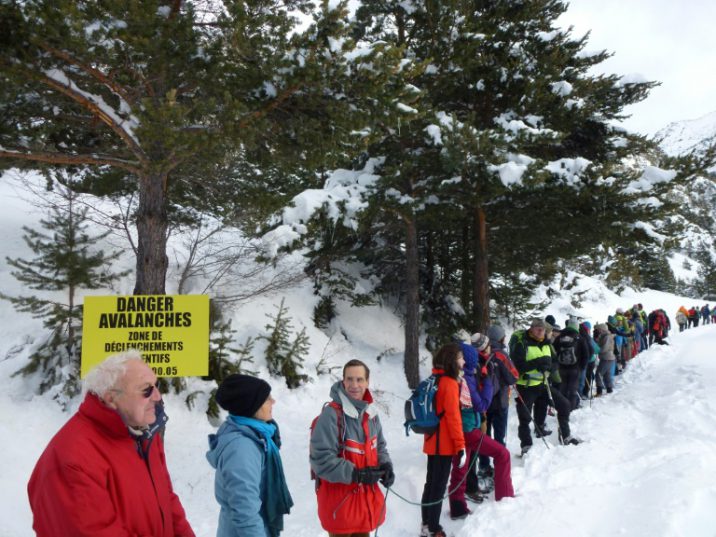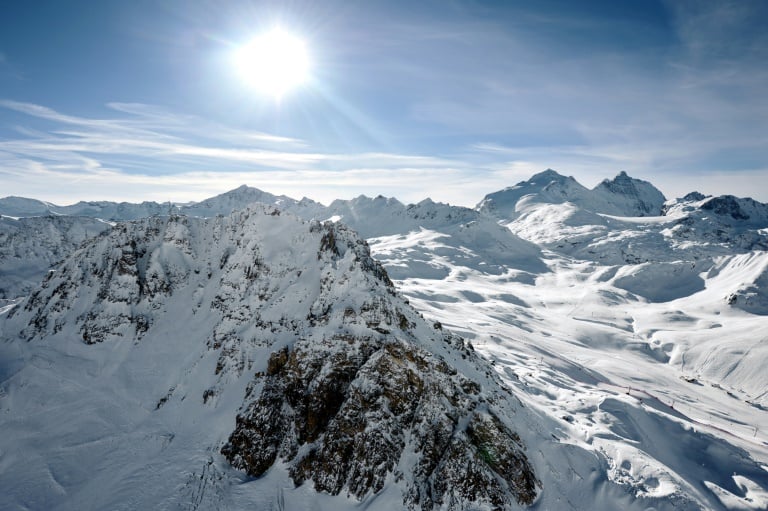Reeza slams Proteas to T20I series win over Pakistan
The Alps have seen weeks of heavy snowfall after an early onset of winter, making efforts to cross the border more difficult and dangerous than in previous years.
“There’s going to be a death any day now,” Jean-Gabriel Ravary, a mountain guide based in the Alpine town of Nevache, told AFP.
“There’s a whole catalogue of dangers that could bring tragedy,” said Ravary, who has worked in the region for 42 years.
Nevache can be reached via the Echelle pass which runs between Italy and France and lies at an altitude of 1,762 metres (5,814 feet).
Temperatures often dip to minus 20 degrees Celsius (minus 4 Fahrenheit) in the winter — not counting the wind chill factor.
There is an easier route via the Montgenevre pass, but it is more heavily patrolled by border police.

Volunteers have been carrying out nightly searches for migrants stranded in the snow as they attempt to cross in to France from Italy
Once on the French side migrants face the added risk of getting lost, according to activists who say signposts have been removed.
Alain Mouchet, a volunteer and mountaineer who organises nightly outings in search of stranded migrants, said between 10 and 12 people were arriving in the area every day.
Like the volunteers, Mouchet said the gendarmes are struggling with the arrivals: “They weren’t hired to run after kids in the snow.”
Last Sunday, dozens of guides rallied together to warn of the risks faced by migrants attempting to make the crossing.
Other locals have joined efforts to support the new arrivals, arguing that they have a duty to help people in danger.
Police recently rescued one young man from Guinea from an avalanche, winching him out by helicopter.
He was barefoot, according to a guide who gave his name only as Etienne.
“He had gone through hell in Libya, in the Mediterranean, and now again maybe here in France,” he said.
– People in distress –

The Alps have seen weeks of heavy snowfall, making efforts to cross in to France from Italy more difficult and dangerous
The migrants have typically been refused asylum in Italy, and want to try their luck in France — although under the so-called Dublin Regulation, France has the right to send them back across the border.
Until recently it was relatively easy to cross into France thanks to the unmanned border between the two countries.
But monitoring has tightened as the volume of arrivals has grown in recent years.
And French President Emmanuel Macron, elected in May, has vowed that his government will be “inflexible” in its policy of expelling economic migrants who have no right to asylum.
Macron’s centrist government has promised to open up new legal avenues for refugees to travel to France, while cracking down on others who are in France to avoid poverty back home, rather than war or persecution.
“We can’t take all of the world’s misery,” Macron has said.
The words echoed those of his Socialist mentor Michel Rocard, who was prime minister from 1988 to 1991, and the first left-wing leader openly to suggest curbs on immigration.
But solidarity with the migrants is strong in the communities around the Alpine town of Briancon, which is close to the Italian border and the popular Serre Chevalier ski resort.
The daily Le Monde reported that 2,000 migrants have been sheltered in the area since July.
Pierre Mumber, 53, is among the hosts for a network named Welcome. “You can’t sleep well knowing that down the road there could be people in distress,” he said.
Mumber slammed what he called a “killer response” by authorities at the border who are cracking down on locals who opt to help the migrants cross.
French farmer and activist Cedric Herrou was given a four-month suspended sentence in August for people smuggling after helping migrants cross into France from the northwestern Italian town of Ventimiglia.
Max Duez, a doctor who is part of a volunteer medical cell set up to help the migrants in the Alps, said: “I’m not an anarchist… but you have to be capable of disobeying.”
Download our app and read this and other great stories on the move. Available for Android and iOS.